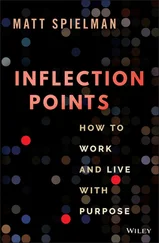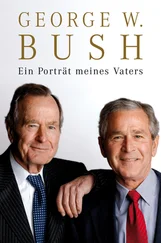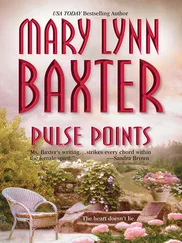I saw that in March 2001, when I held a meeting on North Korea policy to prepare for my visit the next day with South Korean President Kim Dae-jung, my first with an Asian head of state. The previous administration had offered concessions to North Korean dictator Kim Jong-il in return for a pledge to abandon his nuclear weapons program. The policy had not worked, and I told the team we were going to change it. From then on, North Korea would have to change its behavior before America made concessions.
At 5:15 the next morning, I read the Washington Post . One story opened, “The Bush administration intends to pick up where the Clinton administration left off in negotiations with North Korea over its missile programs, Secretary of State Colin L. Powell said yesterday.”
I was stunned. I figured the reporter must have misquoted Colin, because the story was the exact opposite of what we had discussed at the meeting. I called Condi. Like me, she is an early riser, but she had not yet seen the paper. I gave her a summary of the Post story and said, “By the time Colin gets to the White House for the meeting, this had better be fixed.”
I had given Condi a daunting assignment. She had to instruct the secretary of state, a world-famous former general a generation older than she, to correct his quote. Later that morning, Colin came bounding into the Oval Office and said, “Mr. President, don’t worry, it’s all been cleared up.”
The next year, I asked Condi to take on a similar mission with the vice president. It was August 2002, and I was thinking through my decision on whether to seek a UN resolution to send weapons inspectors back to Iraq. Dick gave a speech at the Veterans of Foreign Wars Convention in which he said, “A return of inspectors would provide … false comfort that Saddam was somehow ‘back in his box.’ ” That made it sound like my decision had been made. But I was still considering my options. I asked Condi to make clear to Dick that he had gotten out in front of my position. She made the call and, to Dick’s credit, it never happened again.
I prepared to announce Condi’s nomination as secretary of state shortly after the 2004 election. To fill the national security adviser post, I decided to promote her outstanding deputy, Steve Hadley, a humble and thoughtful lawyer whose advice was always crisp, discreet, and uncolored by any personal agenda. Then, out of nowhere, Andy informed me that Colin had expressed second thoughts about leaving. I considered Colin a friend and appreciated his achievements, especially his work to rally a strong coalition in the war on terror and lay the groundwork for future peace between the Israelis and Palestinians. But I had already decided on Condi.
I’ve always wondered if one of the reasons Colin hesitated to leave is that he expected Don Rumsfeld to go, too. He was right to assume that. I had planned to make a change at Defense as part of a new national security team. Late in 2004, I asked Andy to approach Fred Smith again to see if he would consider the job. I had seen Fred, and he looked perfectly fine. The problem this time was not Fred’s health; it was his oldest daughter’s. Wendy had been born with a fatal genetic heart condition, and he needed to spend time with her. Sadly, she died in 2005.
I considered other possible replacements at Defense. I thought about sending Condi to the Pentagon, but I decided she would be a better secretary of state. I considered Senator Joe Lieberman of Connecticut, but I didn’t think he was the right fit, either. At one point, I reached out to Jim Baker. Had he accepted, Jim could have claimed a historic triple crown as the first person ever to serve as secretary of state, treasury, and defense. But he was enjoying his retirement and had no interest in returning to Washington.
The reality is that there aren’t many people capable of leading the military during a complex global war. Don Rumsfeld was one of the few. He had valuable experience and shared my view of the war on terror as a long-term ideological struggle. At times, Don frustrated me with his abruptness toward military leaders and members of my staff. I felt he’d made a mistake by skipping the retirement ceremony of General Eric Shinseki, the four-star Army chief of staff who stepped down in 2003 after an honorable career. Don’s decision helped feed the false impression that the general had been fired for policy disagreements over Iraq.**
Still, I liked Don. He respected the chain of command. He and his wife, Joyce, devoted themselves to our troops and frequently visited military hospitals without seeking press attention. Don was doing a superb job transforming the military, the mission that initially attracted me to him. He had increased our arsenal of unmanned aerial vehicles, made our forces more expeditionary, expanded the military’s broadband capacity so we could make better use of real-time data links and imagery, begun bringing home troops from former Cold War outposts such as Germany, and invested heavily in the Special Forces, especially in the integration of intelligence and special operations.
Despite his tough external veneer, Don Rumsfeld was a decent and caring man. One day he and I were in the Oval Office. He had just finished briefing me on a military operation, and I had a few minutes before my next meeting. I asked casually how his family was doing. He did not answer at first. Eventually he got out a few words, but then he broke down in tears. He explained to me that his son, Nick, was battling a serious drug addiction. Don’s pain was deep, his love genuine. Months later, I asked how Nick was doing. Don beamed as he explained that his son had gone through rehab and was well. It was touching to see Don’s pride in his son’s character and strength.
I felt for Don again in the spring of 2006, when a group of retired generals launched a barrage of public criticism against him. While I was still considering a personnel change, there was no way I was going to let a group of retired officers bully me into pushing out the civilian secretary of defense. It would have looked like a military coup and would have set a disastrous precedent.
As 2006 wore on, the situation in Iraq worsened dramatically. Sectarian violence was tearing the country apart. In the early fall, Don told me he thought we might need “fresh eyes” on the problem. I agreed that change was needed, especially since I was seriously contemplating a new strategy, the surge. But I was still struggling to find a capable replacement.
One evening in the fall of 2006, I was chatting with my high school and college friend Jack Morrison, whom I had appointed to the President’s Foreign Intelligence Advisory Board (PFIAB). I was worried about the deteriorating conditions in Iraq and mentioned Don Rumsfeld’s comment about needing fresh eyes.
“I have an idea,” Jack said. “What about Bob Gates?” He told me he had met with Gates recently as part of his PFIAB work.
Why hadn’t I thought of Bob? He had been CIA director in Dad’s administration and deputy national security adviser to President Reagan. He had successfully run a large organization, Texas A&M University. He served on the Baker-Hamilton Commission, which was studying the problems in Iraq. He would be ideal for the job.
I immediately called Steve Hadley and asked him to feel out Bob. We had tried to recruit him as director of national intelligence the previous year, but he had declined because he loved his job as president of A&M. Steve reported back the next day. Bob was interested.
I was pretty sure I had found the right person for the job. But I was concerned about the timing. We were weeks away from the 2006 midterm elections. If I were to change defense secretaries at that point, it would look like I was making military decisions with politics in mind. I decided to make the move after the election.
Читать дальше











